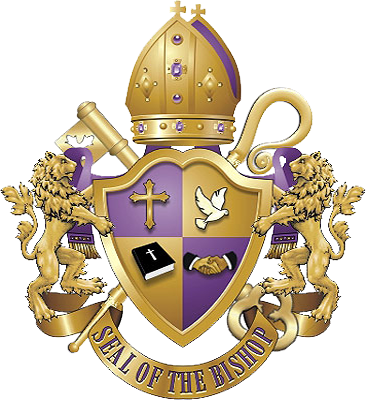The First Bishops of the New Testament
Church: Their Lives and Contributions
Lesson 3.2: Doctrine and Teachings of Ignatius
Ignatius of Antioch stands as one of the most influential figures in the early Christian
church, not only for his role as a bishop and martyr but also for his profound theological
contributions. His writings, preserved in a series of letters, offer critical insight into the
beliefs, practices, and organizational structure of the church during the late first and
early second century AD. In this lesson, we will explore the core themes of Ignatius'
teachings, focusing on his emphasis on church unity and the pivotal role of the bishop.
Ignatius’ letters were written while he traveled under Roman custody, on his way to
martyrdom in Rome. These letters were addressed to various churches, including those
in Ephesus, Magnesia, and Smyrna, as well as to individual leaders like Polycarp.
Through them, Ignatius communicated his theological vision and pastoral guidance,
grounded in the belief that the church must remain unified under the authority of Christ
and the leadership of bishops. For Ignatius, the bishop was not merely a figure of
administrative authority but the visible representative of Christ within the local church.
This idea is central to understanding his contributions to early Christian thought.
One of Ignatius’ most recurring themes is the concept of unity within the church. He
viewed division and schism as grave threats to the body of Christ and frequently urged
Christians to remain united in doctrine, worship, and practice. Ignatius believed that the
church’s unity was rooted in its collective adherence to the teachings of Christ and its
connection to the bishop. He described the bishop as the focal point of unity, a leader
ordained by God to preserve the integrity and purity of the faith. In his letter to the
Ephesians, Ignatius wrote that believers should be "in harmony with the mind of the
bishop," emphasizing the importance of aligning with the bishop’s leadership to
maintain ecclesiastical unity.
This focus on the bishop’s authority was not merely a practical concern but deeply
theological in its implications. Ignatius saw the bishop as a reflection of Christ himself, a
shepherd guiding the flock and ensuring their spiritual well-being. He often drew
parallels between the bishop, the presbyters, and the deacons to the roles of God the
Father, Jesus Christ, and the apostles, respectively. This hierarchical structure,
according to Ignatius, was essential for preserving order and unity within the church. He
urged the faithful to respect and obey their bishops, as doing so was akin to obeying
Christ.
Ignatius also placed a strong emphasis on the Eucharist, viewing it as a central act of
worship and a source of spiritual unity for the church. He referred to the Eucharist as
"the medicine of immortality" and insisted that it should only be administered under the
bishop’s authority. For Ignatius, the Eucharist was not merely a symbolic act but a
sacred reality that united believers with Christ and with one another. He warned against
partaking in unauthorized Eucharistic celebrations, as he believed such practices
undermined the unity and sanctity of the church. His teachings on the Eucharist
highlight his broader theological vision of unity, where individual believers come
together in a shared act of worship under the guidance of their bishop.
Another significant theme in Ignatius’ letters is his view on suffering and martyrdom.
Ignatius saw his impending death as an opportunity to witness to Christ and embraced
it with remarkable courage and faith. His writings reveal a deep theological
understanding of martyrdom, which he regarded not as a defeat but as a victory for the
Christian faith. Ignatius believed that martyrdom allowed believers to participate in the
suffering of Christ and ultimately share in his resurrection. This perspective gave his
letters an urgent and passionate tone, as he encouraged others to remain steadfast in
their faith, even in the face of persecution. Ignatius’ willingness to die for his beliefs
underscored his conviction that unity with Christ was worth any sacrifice.
While Ignatius’ letters primarily address theological and pastoral concerns, they also
provide valuable insight into the challenges faced by the early church. His frequent
warnings against false teachings and heresies reveal the doctrinal disputes that
threatened to divide Christian communities. Ignatius urged believers to reject false
doctrines and to remain firmly rooted in the apostolic teachings handed down through
the bishops. For him, loyalty to the bishop was not merely a matter of organizational
allegiance but a safeguard against error and division.
Ignatius also emphasized the importance of love within the church. He saw love as the
binding force that united believers and enabled them to reflect the character of Christ. In
his letter to the Romans, he described the church as a "choir" that sings in harmony,
each member contributing to a unified song of faith and love. This metaphor captures
Ignatius’ vision of a church that is both diverse and unified, where individual believers
work together in mutual love and respect to glorify God.
In conclusion, Ignatius’ teachings reveal a deep concern for the unity, purity, and
strength of the church. His emphasis on the role of the bishop, the sanctity of the
Eucharist, and the importance of staying rooted in apostolic teaching laid the
foundation for much of the church’s organizational and theological development in the
centuries to come. Through his letters, Ignatius offers us a vision of a church that is
firmly grounded in Christ, united in faith, and committed to living out the gospel in both
word and deed. His life and writings continue to inspire Christians to pursue unity, love,
and unwavering commitment to their faith

Comments are closed.